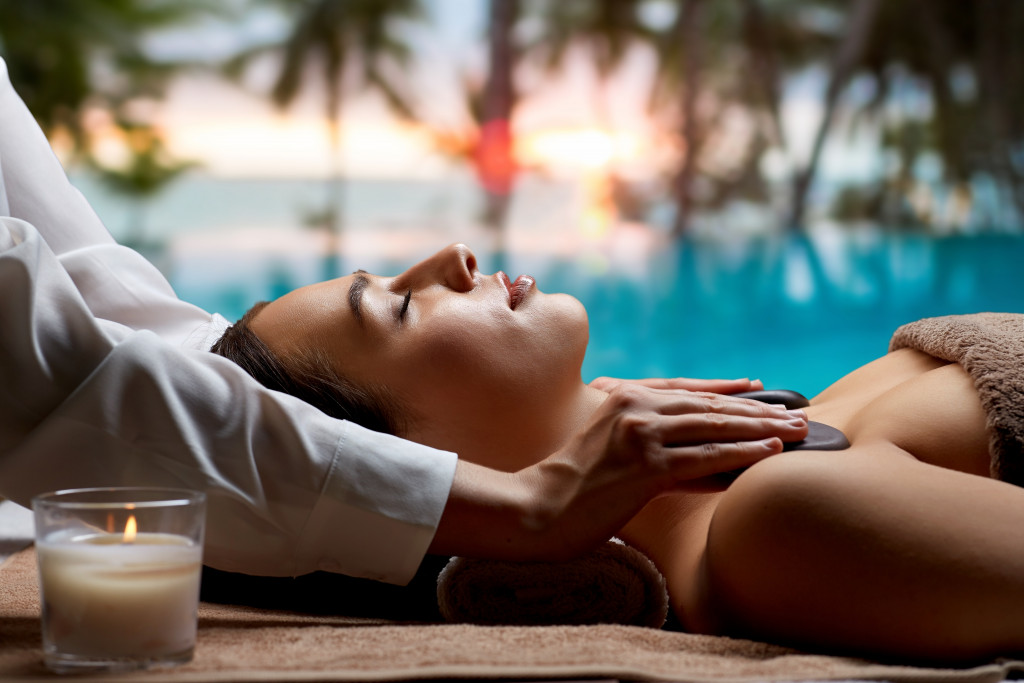Different types of outdoor therapy can be incredibly helpful in improving mental health. Finding the right type is crucial and ensuring you’re getting the most out of it. Here are some different types of outdoor therapy and how they can help.
Go on an ATV Tour
Going on an ATV tour is a great way to get outside and get your heart pumping. There are many national parks in the USA, and you will easily find ATV tours at these parks. You can opt for any national park ATV tour and get going. Not only will you enjoy the fresh air and beautiful scenery, but you’ll also get a good workout.
Also, operating an ATV can be quite therapeutic. The focus and concentration required can help clear your mind and ease stress. So, if you’re looking for an outdoor activity that can provide some real benefits, consider going on an ATV tour.
Take a Hike
Numerous studies have shown that interacting with the natural world can reduce stress, improve moods, and increase cognitive function. And while there are many ways to experience the benefits of nature, hiking is one of the most effective.
Hiking allows you to immerse yourself in the sights, sounds, and smells of the outdoors, and research has shown that it can significantly reduce stress levels. One study found that a 90-minute hike in a natural setting was enough to reduce participants’ cortisol levels, the body’s primary stress hormone.
Camping
Camping has long been recognized as a great way to reduce stress, get some exercise, and enjoy some time in nature. There is growing evidence that camping can also have significant mental health benefits.

Camping is thought to be so beneficial because it helps to promote “restorative attention,” which is the ability to focus on positive experiences and beauty. In our busy, modern lives, we often have difficulty taking the time to appreciate the simple things in life. Camping forces you to slow down and enjoy the sounds of birds chirping, the smell of fresh pine needles, and the feel of soft grass under your feet.
Visit a National Park
What if you don’t live near a park or other natural area? Can you still reap the benefits of outdoor therapy? The answer is yes! Here are some ideas for getting the most out of your national parks experience:
- Visit a ranger station: Rangers are a wealth of knowledge about the park’s history, wildlife, and geography. They can also offer suggestions for activities and hikes suitable for your skill level.
- Attend a ranger-led program: Ranger-led programs are a great way to learn about the park and its inhabitants. Programs typically last an hour or two, so they’re perfect for fitting into a busy schedule.
- Explore on your own: Of course, you don’t always need a ranger to show you around. Many national parks offer self-guided tours that allow you to explore at your own pace. Whether you’re looking for an easy walk or a challenging hike, you’ll surely find something to suit your interests.
Take a Bike Ride
Some participants reported feeling more relaxed and less anxious after spending time outside riding their bikes. Research has shown that nature can help to reduce symptoms of depression and anxiety.
Being in nature can help shift our focus from our worries and problems and provide a sense of calm and peace. In addition, outdoor activities can help to increase our level of physical activity, which has numerous benefits for our mental health. So next time you’re feeling stressed or down, consider spending some time outdoors.
Play in the Snow
There are many ways to experience this benefit, but one of the most enjoyable is simply playing in the snow. We stimulate our senses and promote positive emotions when interacting with our natural surroundings. Snow provides a unique opportunity for this therapy, as it is visually and physically stimulating.
The act of playing in the snow can also help to release endorphins, which have mood-boosting effects. In addition, snow can act as a natural sound barrier, helping to reduce stress and promoting relaxation.
Swimming
Many forms of outdoor therapy can be used to improve mental health, but swimming is one of the most effective. Swimming has been shown to reduce stress and anxiety, and it can also help to improve mood and energy levels. Furthermore, swimming is a great way to get exercise and fresh air, both of which are essential for good mental health.
As you can see, many types of outdoor therapy can be incredibly helpful in improving mental health. It is important to find the right type and ensure you’re getting the most out of it. These are great options if you’re looking for a way to distress.
